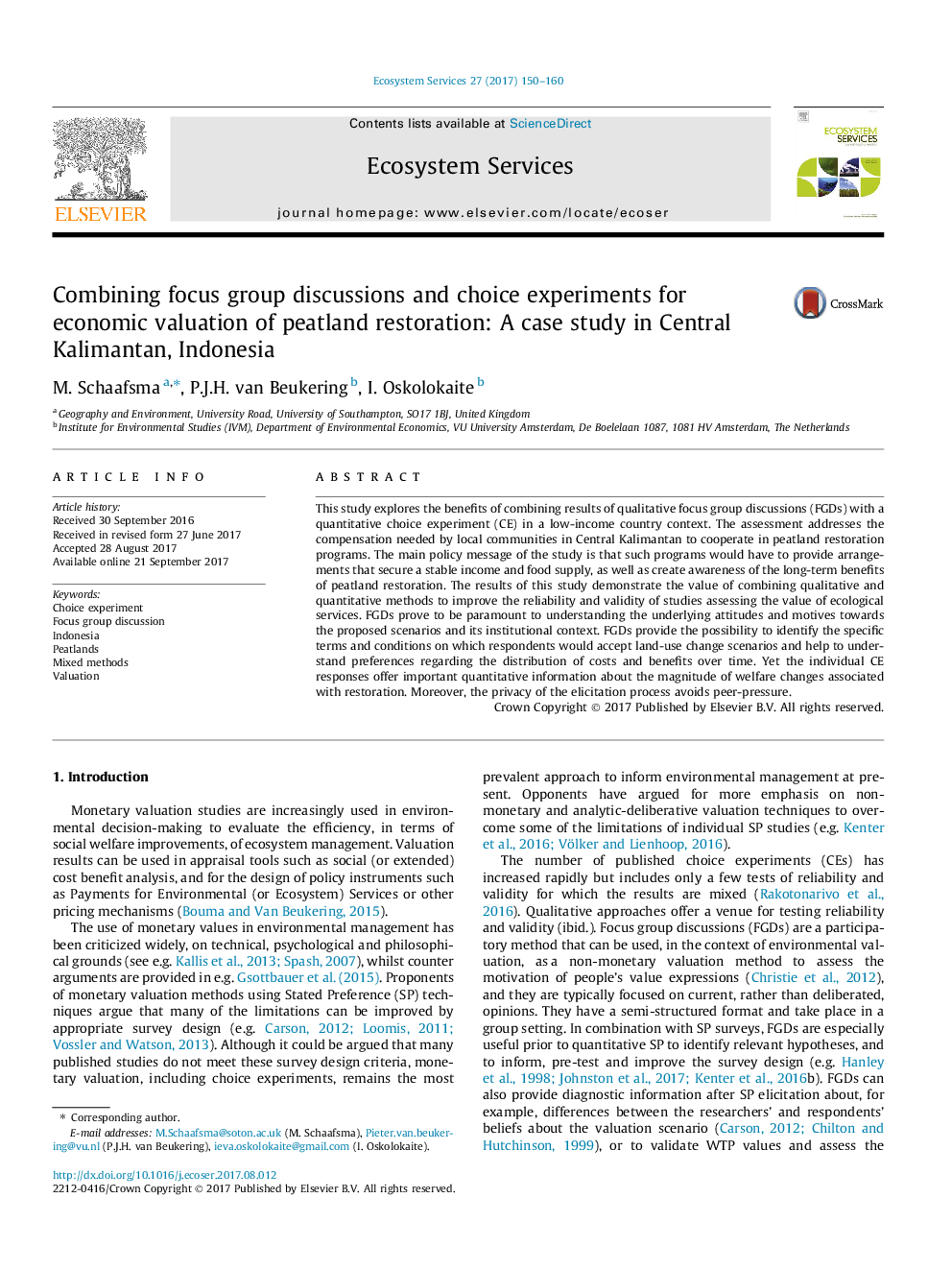ترجمه فارسی عنوان مقاله
ترکیب بحث های گروه های تمرکز و آزمایش های انتخاب برای ارزیابی اقتصادی بازسازی زمین های ذرت: مطالعه موردی در کلیمانتان مرکزی، اندونزی
عنوان انگلیسی
Combining focus group discussions and choice experiments for economic valuation of peatland restoration: A case study in Central Kalimantan, Indonesia
| کد مقاله | سال انتشار | تعداد صفحات مقاله انگلیسی |
|---|---|---|
| 135262 | 2017 | 11 صفحه PDF |
منبع

Publisher : Elsevier - Science Direct (الزویر - ساینس دایرکت)
Journal : Ecosystem Services, Volume 27, Part A, October 2017, Pages 150-160
ترجمه کلمات کلیدی
آزمایش انتخاب بحث گروه تمرکز، اندونزی، بوته ها، روش های متفرقه، ارزیابی،
کلمات کلیدی انگلیسی
Choice experiment; Focus group discussion; Indonesia; Peatlands; Mixed methods; Valuation;

